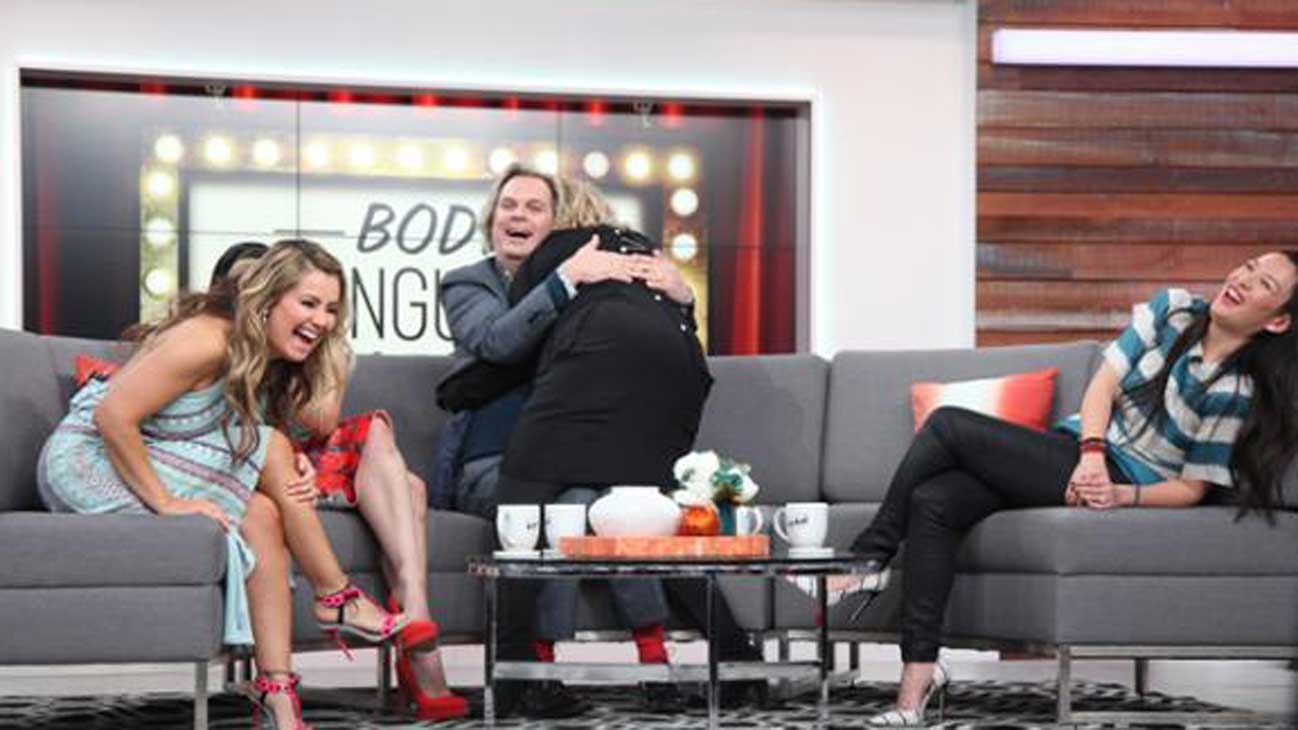Today’s executives need to do more than simply succeed: they need to stand out. Communications expert Mark Bowden explains how to use persuasive communication skills to set yourself apart, win trust, and generate profit. His trademark techniques are used by top leaders and political players around the world who want to gain an advantage—beyond words—when they speak. Mark appeared on CTV’s The Social yesterday and had a hilarious conversation with the hosts (including our very own Jann Arden–that’s her hugging him in the photo above) about the body language mistakes we all are making:
The gestures that we often use aren’t always interpreted the way we’d like them to be, so it’s important to know what messages you’re sending without even knowing it.
When you play with your hair…
People interpret that as a flirt signal, which is fine if you’re trying to flirt, but not if you’re in an office setting or at a meeting. It might be totally well intentioned (maybe your hair is in your eyes) but that’s not how the people watching you will likely perceive it. They’ll think you’re flirting with them. If you’re prone to hair touching, just lace your fingers together – you’re far less likely to subconsciously play with your hair.
When you lean back during conversation…
It suggests that you’re not interested. Leaning back doesn’t just mean leaning back with your body. It also includes moving your eyes away, looking down, prominently displaying your chin/neck… any mix of leaning back and doing those things can cause you to easily look disengaged and arrogant. Instead, sit up straight in your chair, tilt your head to one side and hyperfocus on leaning forward and making good eye contact.
When you cross your arms…
People think you’re closed off. The funny thing is, that’s just not true – there’s no science that suggests that it’s true – but enough people believe it to make it worth avoiding. If you’re someone who crosses your arms, try your best to have objects to carry. If you’re at a party or networking event, carry a drink in your hand. You’ll automatically be less likely to cross your arms.
When you fidget…
Others read you as anxious or nervous. It doesn’t matter that you could be trying to find something in your pocket or trying to get comfortable in an uncomfortable chair, ultimately people think you’re a ball of anxiety. Fidgeting also includes self-soothing gestures like rubbing your neck and face – we do these things because they produce oxytocin and make us feel calmer, but they can look very anxious. If you’re likely to fidget, interlace your fingers and lift them further up your body. Trying to keep them at your side can actually make you look disengaged.

